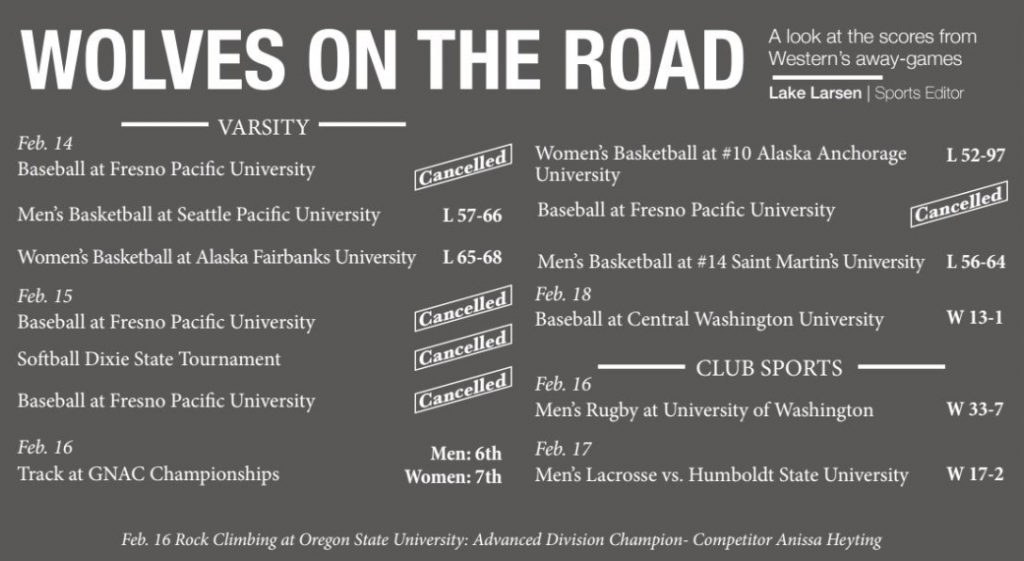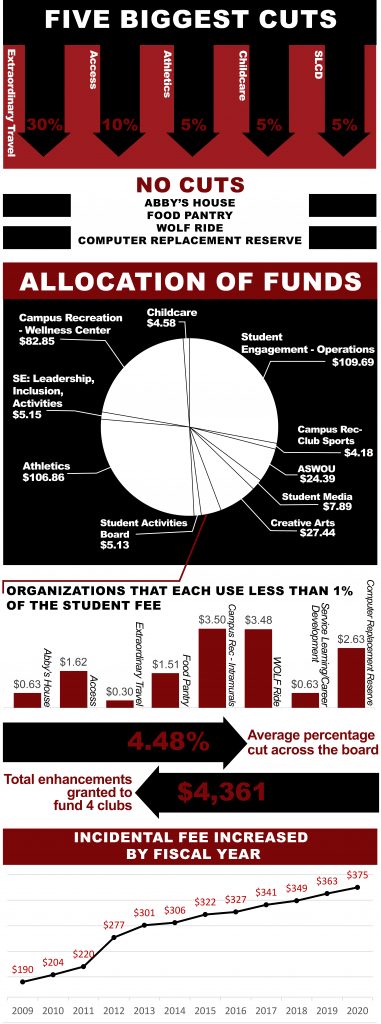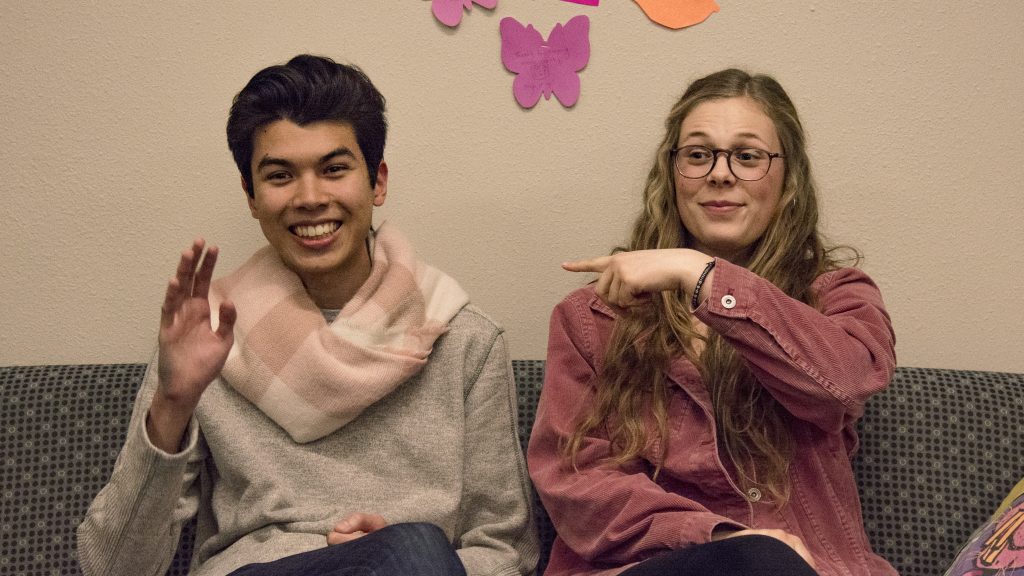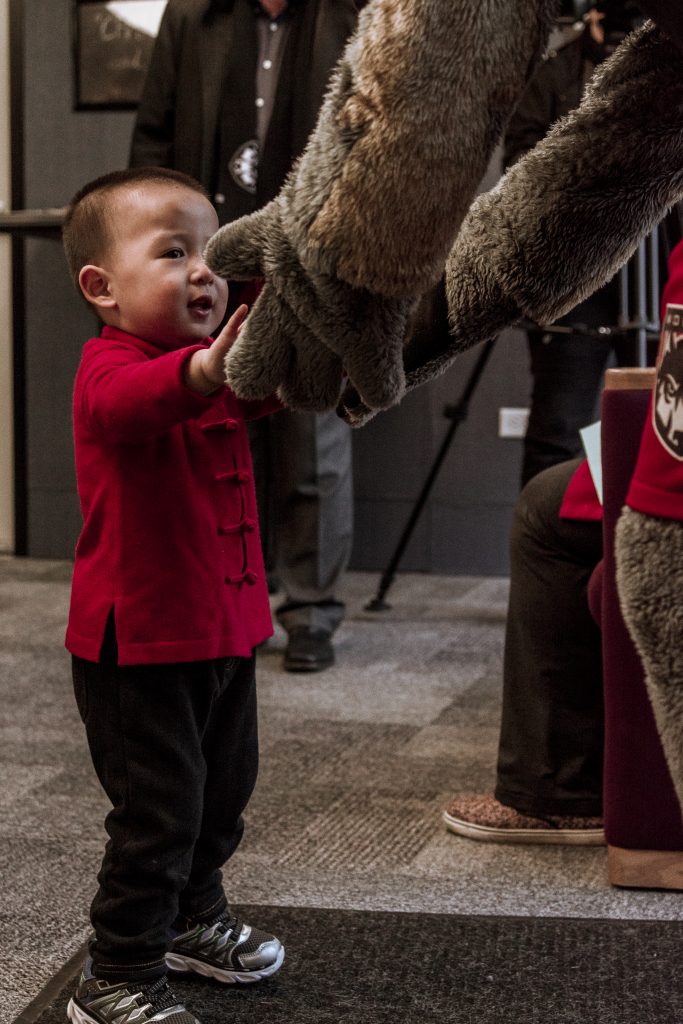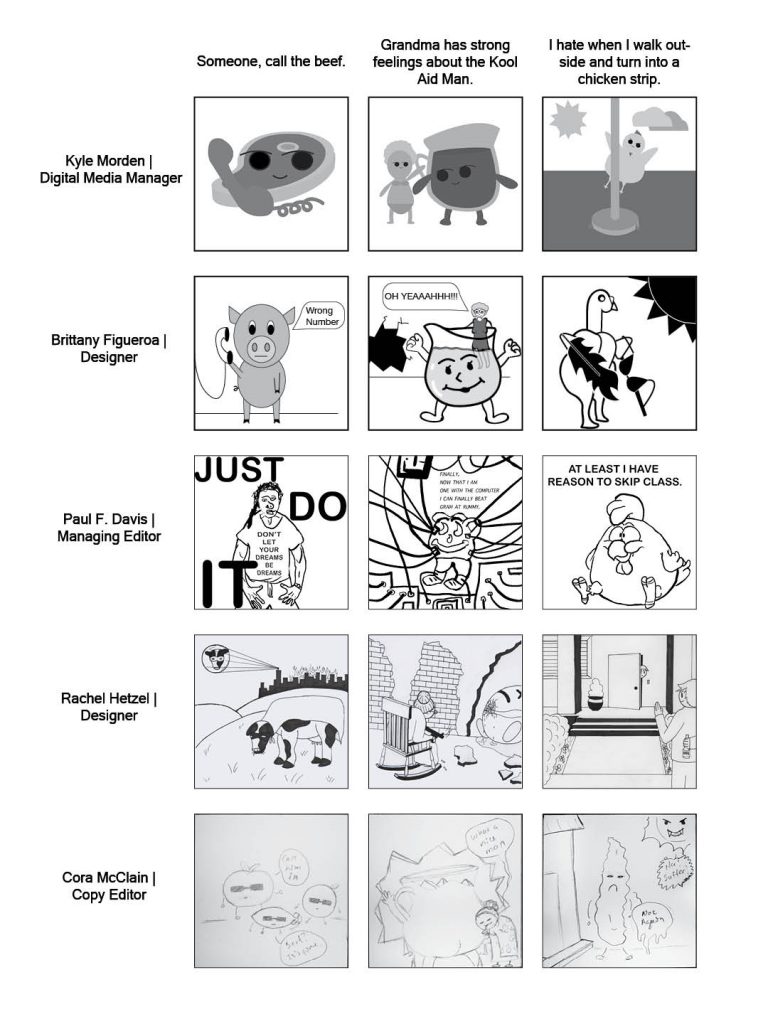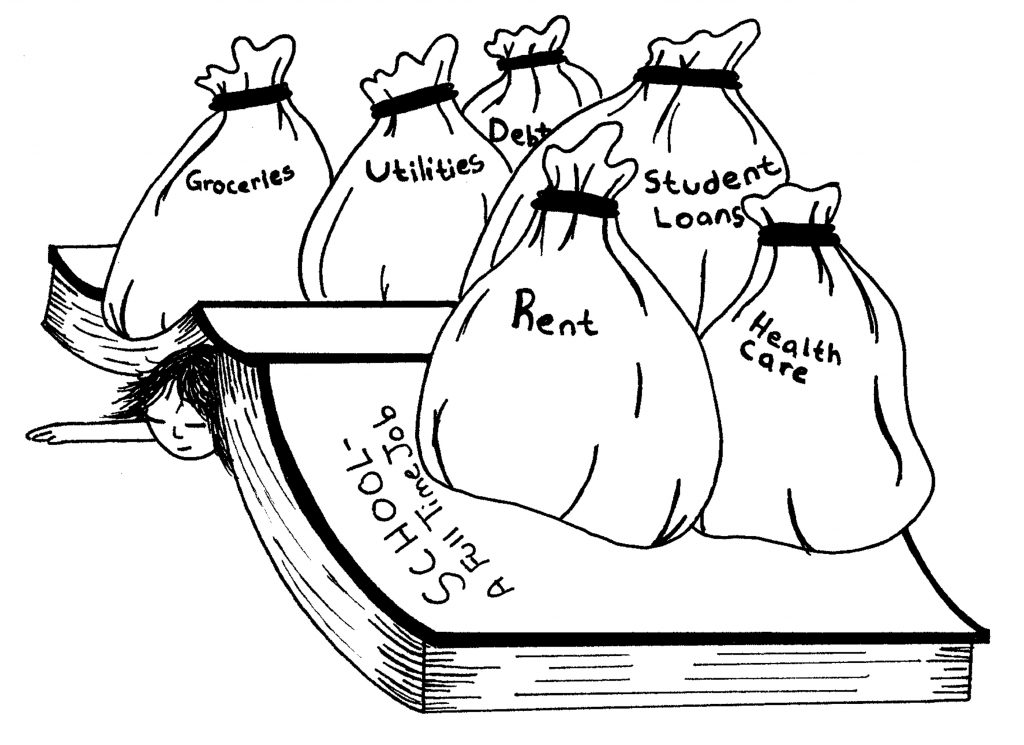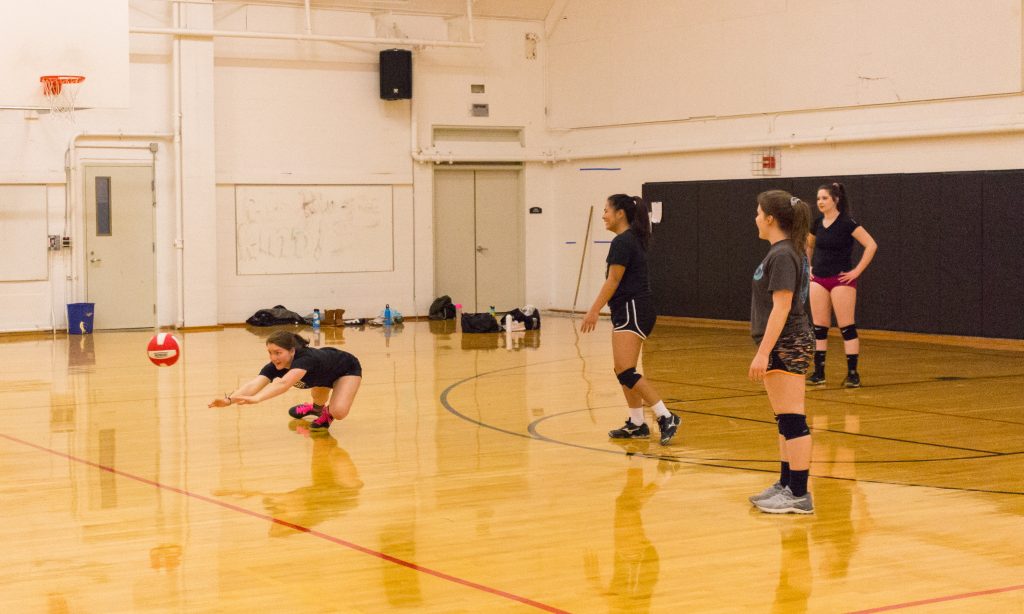
Mikaela Wong | Staff Writer
Another recent development in Club Sports has emerged — Women’s Volleyball. Started by multiple students who were interested in playing year-round for fun, the club is off to a strong start.
In the weeks since its inception as an official club, Women’s Volleyball has gathered 13 players. The team has already found its way onto the court by hosting weekly practices in the Health and Wellness Center. Along with this, the team has acquired a coach, junior exercise major Michael Burns, and is currently looking into holding friendly scrimmages with other local teams such as Willamette University.
“We just want it to be fun and give a chance to people who are interested in volleyball to be able to do it. That’s our main focus,” said Tatianna Brock, a senior psychology major who helped start the club and is currently co-president.
“I think a lot of people … get really involved in volleyball in high school and then go to college and say ‘what now?’ Because yes, there are intramurals, but that only happens for a couple weeks out of the year,” added Brock about how the club hopes to be a good transition from high school competitive sports to more recreational activity.
Many of those who know the struggle of wanting to continue their love for their sport without playing for the school can relate to Brock.
“That’s what happened to me. I got out of high school and knew I loved volleyball but I didn’t really want to play competitively at a college — I’m not really at that level yet,” Brock explained.
At the end of Winter Term, Brock is graduating from Western, but hopes the team of mostly first-years carry on what has been laid down as foundation for the club.
“We want this club to get to the point where we feel confident playing other schools and in tournaments,” Brock added. “I wish there was something like this when I was a freshman.”
Currently, the club does not have any matches scheduled but does still practice regularly, offering perspective athletes the chance at something a little more competitive than intramurals. Students can join the club or learn more information on IMLeagues.com/wou.
Contact the author at mwong16@wou.edu
Photo courtesy of Ashlynn Norton


